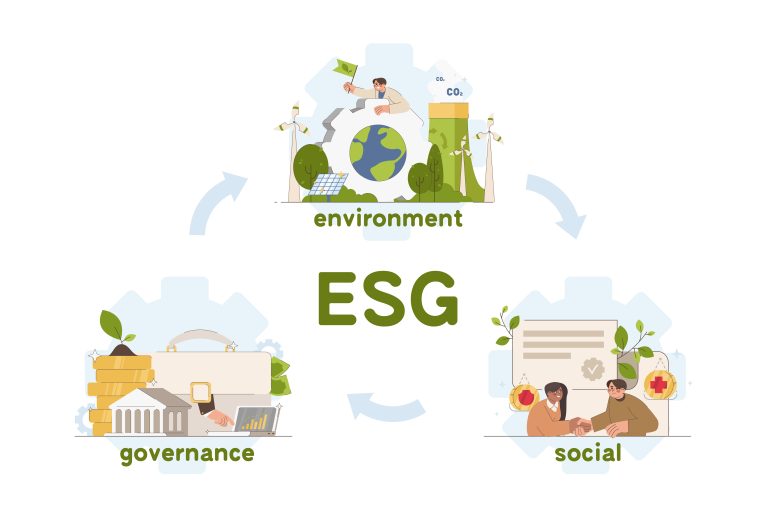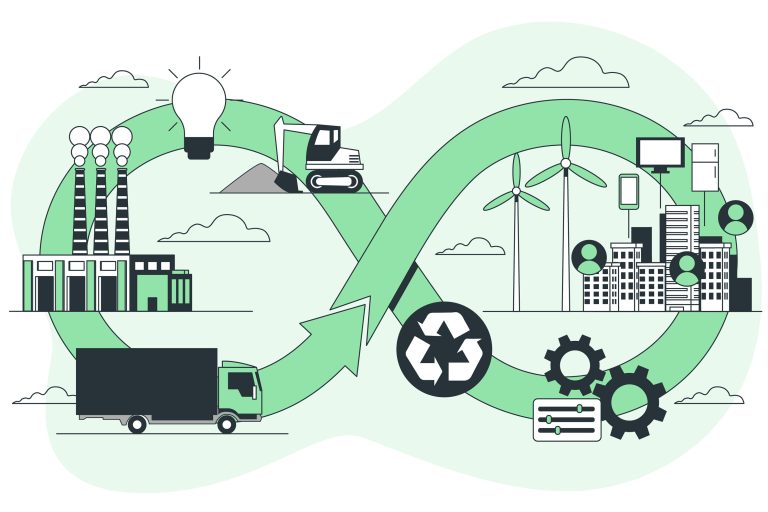ESG Sectors: Tech ESG
Tech ESG leaders are at the apex of innovation and sustainability. Setting ESG goals is critical for this forward-thinking sector
Client attraction and retention
Stakeholder trust
Amidst concerns over the influence of “Big tech”, sustainability goals helps showcase companies a moral compass – fostering trust among customers, investors, employees and other stakeholders
Long-Term Viability
As the carbon effects of heightened data usage become more apparent, it is clear that a carbon transition plan is critical for tech firms
Business model resilience
Close management of product governance matters can make the firm more robust to hacking, data leakage and other highly disruptive events
ESG Targets in the Tech Sector
Tech companies are zeroing in on specific ESG targets that align with their unique challenges and aspirations. Some ESG examples of critical areas include
Common targets can include setting measurable greenhouse gas emission reduction goals and investing in sustainable energy.

Companies set specific and measurable targets which can include diversity, equity, inclusion, and training.

Tech firms are investing in research and development to create AI systems that are fair, transparent, and free from bias.

Measurable targets could be related to R&D investments in climate tech and specific energy efficiency targets associated with new products

Examples of supply chain sustainability targets include reducing carbon emissions, sustainable sourcing, labor rights compliance, waste reduction, energy efficiency, water management, transparency, product lifecycle assessment, responsible packaging, and more

What to Expect The Future of ESG in Tech
The ESG landscape in the tech sector is ever-evolving, and staying ahead is essential. Key trends in particular to monitor.
Regulatory Evolution
Anticipate emerging regulations surrounding ESG in tech. Governments are increasingly holding tech companies accountable for their societal and environmental impact.
While firms do not typically publicise major targets in this area, they may announce goals around “zero tolerance” for compliance failures. Or specific goals resulting from regulatory areas of focus
Tech for Good
Tech companies will continue leveraging their resources to tackle global challenges, from climate change to social justice and education.
Examples of tech for good targets and KPIs include social and environmental impact metrics, diversity and inclusion metrics, philanthropic giving, partnerships for impact, innovation for sustainability, and employee engagement.
Incorporating tech for good targets and KPIs into a tech company’s strategy goes beyond corporate social responsibility; it becomes a strategic imperative. These metrics can shape the company’s innovation, resource allocation, competitive positioning, and reputation, ultimately driving long-term sustainability and impact in areas critical to society and the environment.
Sign up for free today
Join ESGRoadmap on the journey towards a more sustainable future by understanding and scrutinizing the industry-specific reporting and targets of companies. Start your research today with a free trial.
